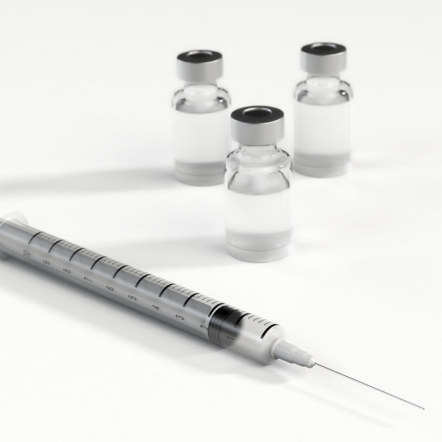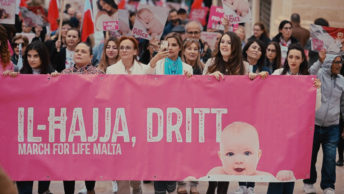When I was younger, I recall being asked if I was allergic to “eggs” before I got a flu shot. Oh, for the good old days. Vaccines were produced in eggs and no one worried about the morality of a vaccine.
Today is different. A COVID-19 vaccine cannot be produced in eggs. Unlike the flu virus, the coronavirus has unique receptors and characteristics that inhibit replication in eggs. Alternative technologies have advanced to more efficient means of production. Unfortunately, this efficient means of production has been through the use of HEK (human embryonic kidney, HEK 293) cell line which were originally isolated from tissue obtained from an aborted fetus. In reality, these cell lines do not have to be used. They are convenient and inexpensive. More importantly, they are well characterized.
Vaccines could be made from insects with no moral consequences except, when produced in this manner, DNA from the host can be introduced into the product. There is also the ethics of cross species introduction of cell matter. To avoid this, HEK cells have been used for nearly five decades because their growth profile, genetics, what material they excrete into the media, their post expression modification of proteins, etc. is well understood.
The Pfizer and Moderna COVID vaccines do not use HEK cells for production. They are based on the use of mRNA technology. This technology synthesizes messenger RNA but still needs antibodies to test and isolate the material. HEK cell lines are only used for initial expression and test assays (ELISAs, etc.), mainly because it is fast and you can get an answer. However, after this point, they can switch to CHO (Chinese Hamster Ovary) cells that permanently express the protein at high levels. The conversion of CHO cells is expensive and time consuming.
So, we are faced with the morality of cell lines created from aborted fetuses and the rapid need for vaccines to halt a pandemic. The morality of using HEK cell lines from aborted fetuses is pretty clear in Catholic moral theology. No “good” can be licit if it is derived from a moral evil. In other words, the end cannot be used to justify the means.
However, we live in a world of gray, not black and white. In Dignitas Personae, the Vatican’s Congregation for the Doctrine of the Faith taught that “danger to the health of children could permit parents to use a vaccine which was developed using cell lines of illicit origin.” As importantly, along with this allowance comes the responsibility of parents to make known their disagreement on the morality of the vaccine. Catholics must work to challenge the healthcare system to make alternatives available. In addition, a distinction is made between those scientists who make the decision to use morally controversial cell lines and those scientists who have no say in the matter. In clinical trials, principal investigators must make sure that their research groups witness to the absolute dignity and to the sacredness of human life.
Where does this leave us in a pandemic? Recently, Bishop Joseph Strickland of the Diocese of Tyler, Texas and Bishop Joseph Brennan of the Diocese of Fresno instructed their dioceses not to use the vaccines. This prompted the U.S. Conference of Catholic Bishops (USCCB) to issue a memo to all U.S. bishops correcting this position by stating that “at least two of the vaccines are considered ethically sound.” The memo also reminded bishops that Church teaching allows for “even the widespread use of vaccines whose origins are considered ethically unsound when other treatments are unavailable.”
The USCCB reminded the bishops that there exist different levels of moral responsibility, ranging from the creator of the vaccine to recipients. The recent memo reaffirmed earlier memos from 2007 and 2015 which again clarifies that “Catholics may licitly accept vaccination for themselves and their children using a vaccine based on tissue from abortion,” citing the case of pregnant women or extreme risk to the public health. In addition, while some disagree, the Pontifical Academy for Life recently stated that it found nothing morally objectionable in either the Pfizer or Moderna vaccines.
Fortunately, advances in the technology used to produce and test vaccines is moving away from HEK cells. As Catholics, we must continue to encourage this movement away from unethically derived sources and promote the dignity of life. Similar lines of immortalized cells from moral sources or other type of cell can be used. However, they are not available today for use in the common good of stopping this pandemic.
Whether one decides to take the vaccine is one of informed conscience. As with all medications, there are risks of side effects. The Church has ruled that we can take the available COVID-19 vaccines. It also teaches that those who refuse the vaccine for reasons of conscience, “must avoid transmitting the virus particularly to anyone who cannot be vaccinated for medical or other reasons.” Pope Francis himself is more concerned that the poor have access to vaccinations than their being illicit. As a scientist I am uncomfortable with much of the “data” portrayed in the news. However, as a Christian I have to ask myself, “is the inconvenience of my wearing a mask and becoming part of the herd immunity through vaccination for a potentially vulnerable neighbor more important than my desire not to wear a mask or get the vaccine?”
In light of a pandemic, it becomes about the common good. The “morality” of that choice is pretty clear.








